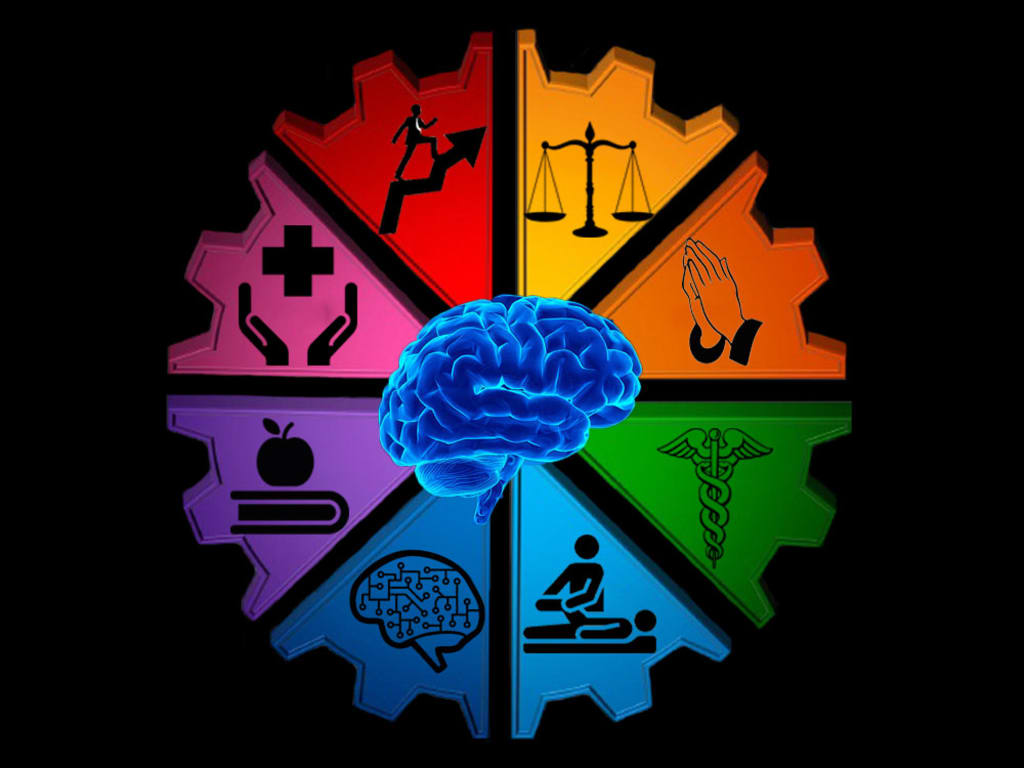Sense of Community, Citizen Participation, and Empowerment
A Community Psych Perspective

Sense of community, citizen participation, and empowerment. Three concepts that are inarguably tied together. A successful community shows signs of all three concepts. What are these concepts though? How are they defined? Well, these three concepts are important aspects if community psychology. Sense of community, as defined by Sarason (1990, as cited in Kloos et al, 2012), is the sense that you are not alone in the world. An individual receives benefits, such as a neighborhood watch or emotional support, from being a part of a community, such as a religious or geographic community.
Citizen Participation is just what it sounds like. Citizen participation is defined by Wandersman and colleagues as a process in which individuals take part in decision making in programs or institutions that have a direct effect on them (1984, as cited in Kloos et al, 2012). Citizens participate in some kind of community event such as a cookout or town hall meeting and are a part of the decision-making process on what to do in the future. This is where sense of community comes in. Citizen participation, when done collectively in a group setting, is more powerful and can promote change more effectively than when done individually. Feeling like a part of a community can lead to more citizen participation and greater chance of change.
Empowerment is the final concept and is linked with both sense of community and citizen participation. The Cornell Empowerment Group formed a more group-oriented definition of empowerment. They defined it as an intentional process that is centered in the local community, that allows people lacking equal shares of resources greater access to and control over those resources through critical reflection and group participation (1989, as cited in Kloos et al, 2012). Citizen empowerment is often seen as enhancing possibilities for individuals and communities to take control of their lives (Rappaport, 1981, as cited in Kloos et al, 2012).
Empowerment is a multilevel entity seen in individuals, organizations, communities and societies (Rappaport, 1987, as cited in Kloos et al, 2012). Each level in which empowerment is involved is important as empowerment on only a single level is not effective at promoting change (Zimmerman, 2000, as cited in Kloos et al, 2012). Empowerment is a cascading entity. Empowerment of several individuals can be pooled to have empowerment as an organization. Multiple organizations, or groups, can empower as a community, and multiple communities together can empower localities and governments.
Within Altamaha Baptist Church, a religious community, there is evidence of each of these community psychology concepts. Within this religious community, sense of community plays a large role. Having each young person in the youth group feel a part of a larger force within the church is a primary goal. This relates directly to the concept of sense of community as defined by Sarason (1990, as cited in, Kloos et al, 2012). Each member of this religious community, whether they are youth or not, benefit from an enlarged sense of community and feeling a part of something bigger. Sense of community built up among each individual leads to a better sense of community as a whole.
Along with an enlarged sense of community, members of this religious community also benefit from participation in the community itself. This is a great example of citizen participation as defined by Wandersman and colleagues (1984, as cited in Kloos et al, 2012). Members of the religious community coming together and participating in events such as fellowship meals to build up the sense of community or in business meetings where each individual member of the religious community can speak on subjects related to the budget, charity, or programs within the church and have a direct effect and influence on the outcomes of the discussions are prime examples of citizen participation because they rely on each citizen, or member, to pool together and make things runs smoothly. Certain people, by participating in an event, bring others along to participate, thereby increasing the rate of citizen participation.
Related to both of these concepts is the third concept of empowerment. As stated before, empowerment is defined as an intentional process that is centered in the local community, that allows people lacking equal shares of resources greater access to and control over those resources through critical reflection and group participation (1989, as cited in Kloos et al, 2012). Allowing citizen participation in business meetings and fellowship, as well as building up of a sense of community leads members of this religious community to become more involved in the programs and events of the not only the religious community of Altamaha Baptist Church, but also in the outside communities of government and academic settings. Each member, through empowerment, gains some sort of control over certain resources in the church such as money, time, or location.
Also as mentioned before, empowerment is a group effort. Empowerment is not effective at promoting change or influencing decisions on just the individual level. Groups of individuals, empowered together through citizen participation and holding a heightened sense of community will gain greater influence over the resources in question. An example of this is when all the older youth, together, enter into the business meeting discussions and put forth their ideas and opinions. Individually they have no real influence, but together they have empowered themselves to change the decisions of the church as there are more of them than adults in business meeting. Sense of community, citizen participation, and empowerment are important concepts in community psychology and together influence the inner workings of a community.
References
Kloos, B., Hill, J., Thomas, E., Wandersman, A., Elias, M. J., and Dalton, J. H. (2012). Community psychology: Linking individuals and communities. Belmont, CA: Wadsworth Cengage Learning.
About the Creator
Cobe Wilson
Gamer, writer, poet, academic.
Purchase photography or merchandise here!!! --> https://the-photography-of-cobe-wilson.creator-spring.com/






Comments
There are no comments for this story
Be the first to respond and start the conversation.